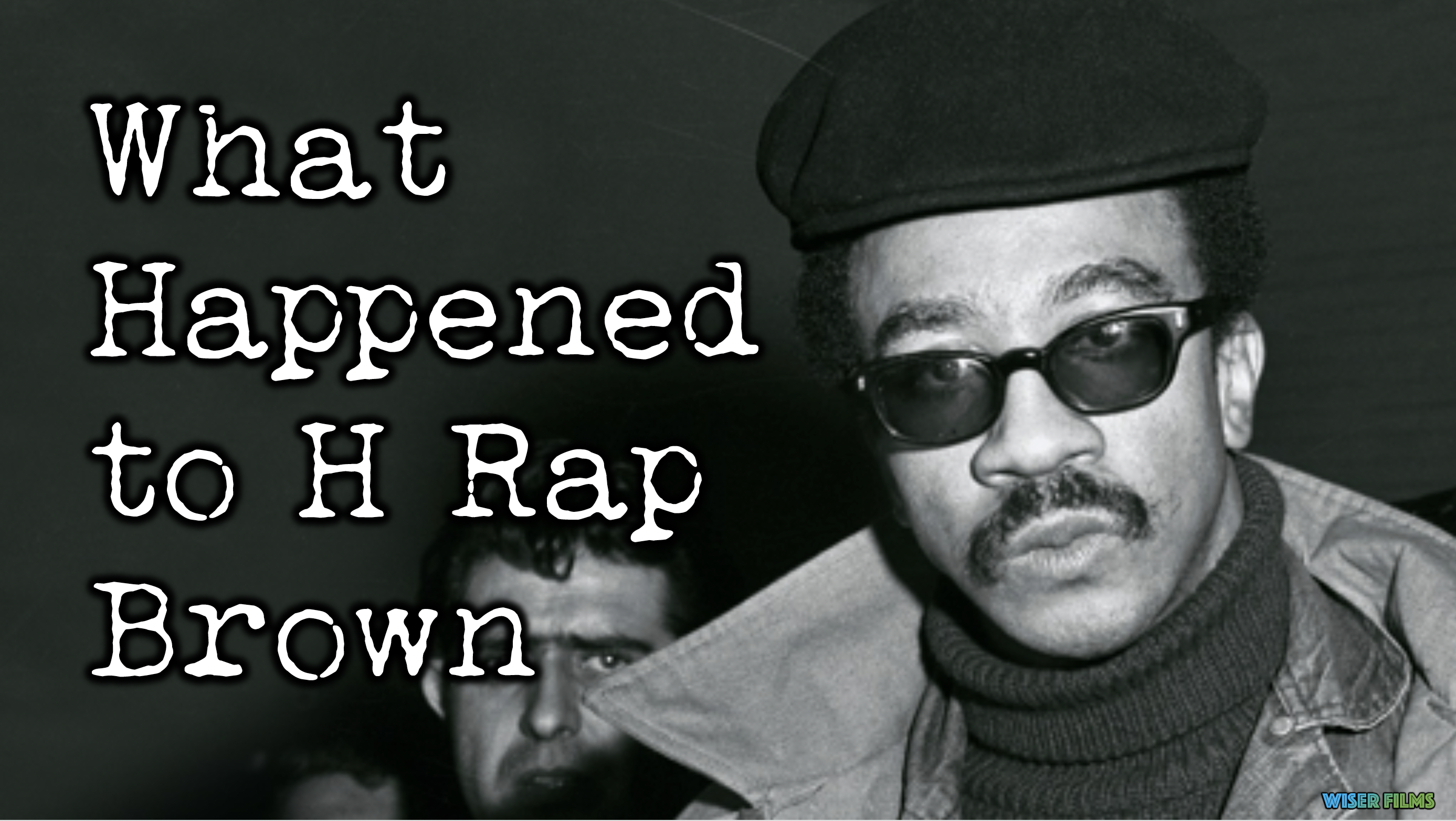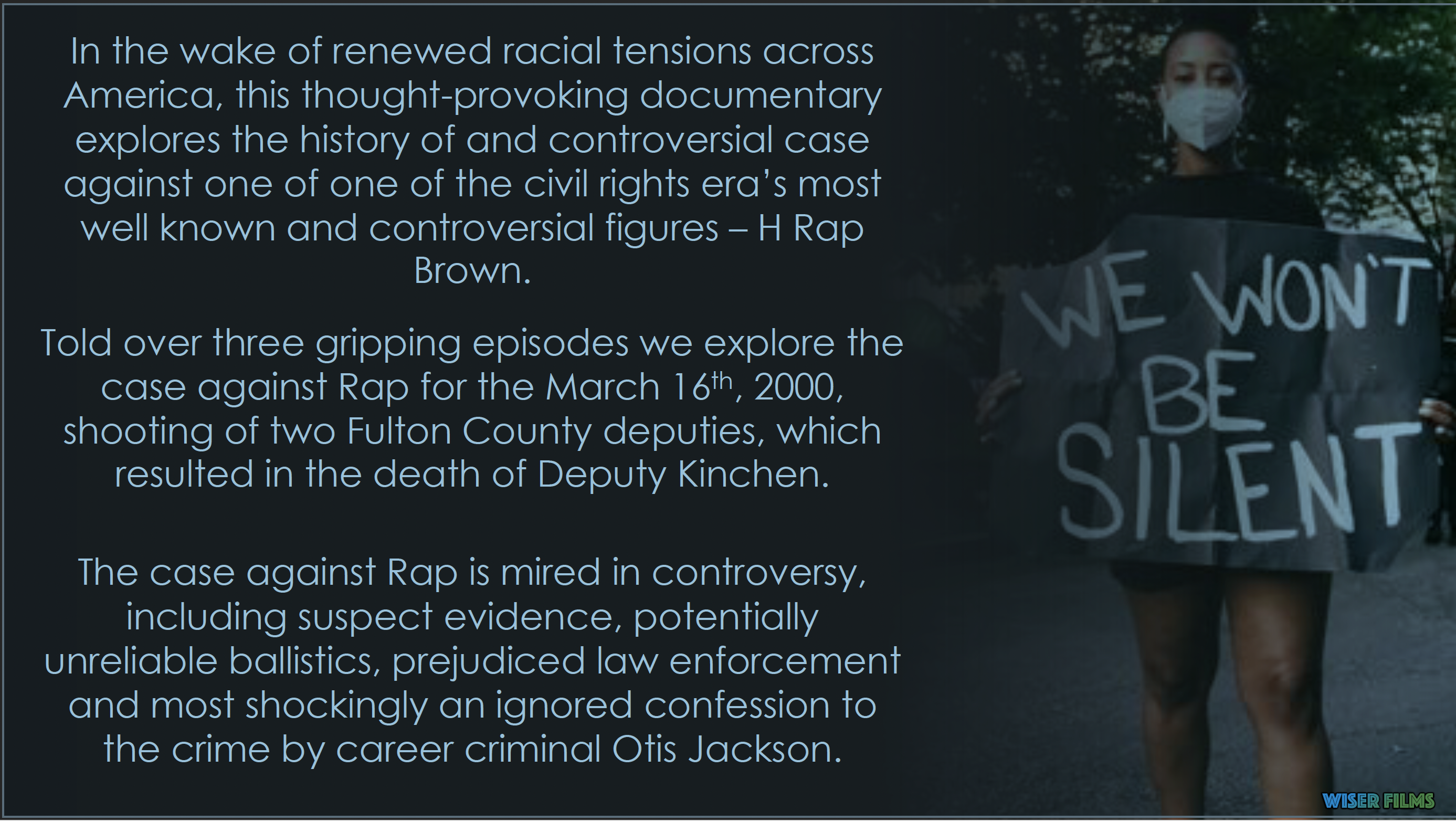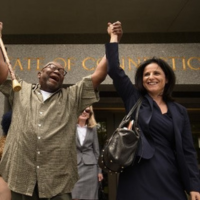


raised of $450,000 USD goal
Giving is better together! Your share could raise over $77.
https://www.launchgood.com/v4/campaign/what_happened_to_imam_jamil_alamin_fka_h_rap_brown__a_true_crime_docuseries
“Whoever guides someone to goodness will have a reward like the one who did it.”
— Prophet Muhammad ﷺ

Impact: United States

Verified for authenticity.
This campaign will collect all funds raised by June 1, 2024 at 4:00 AM EDT

As Salaamu Alaikum!
What Happened To H. Rap Brown is a gripping true crime tale complete with everything you typically only see in big Hollywood blockbusters!
Espionage, government conspiracies, murder confessions, witness disappearances...but what really happened to H. Rap Brown that fateful night in March of 2000?
We're working with an amazing team of award winning attorneys, investigators, producers and distributors to make this possible (see below)!
But we need your help to take this mainstream!
We are in communication with most of the major streaming platforms (Netflix, Amazon, Hulu, Paramount to name a few) and there is serious interest in a complete project so...here we are humbly asking for your support so we can give them what they are asking for!
Imam Jamil Al-Amin, formerly H. Rap Brown is an innocent man, freedom fighter, civil rights leader and humanitarian serving life in prison for murder he did not commit.
This is his story and whether you're here because of your love for the man, your love of freedom, your belief in justice or just your addiction to true crime lol, I appreciate you for helping us tell it!

This episode starts by exploring Browns early life and activism. We then dive into the states case against Brown in 2000 shooting of Deputies Kinchen and English, the subsequent manhunt and arrest of Brown . The episode ends by introducing Otis Jacksons shocking confession.
In this episode we start to unpack the extent to which the FBI was involved leading up to the incident, failures of Browns defense, exposing how Otis Jacksons confession for murder was not used in the trial and why. We will also be exploring the validity of Otis’ confession and whether his account of events can be relied upon.
But what about the eyewitnesses? Could the shooter have been someone else entirely!?!
The case against Brown rested heavily on circumstantial evidence as well as a few key pieces of forensics. In this episode we explore the reliability of this evidence and how it may have been compromised by incompetence, prejudice and potential abuses of power.
Lastly, we'll be taking a look at the new and relevant evidence not presented at trial in an effort to present the total picture surrounding that fateful night! Recreating all viable scenarios in hopes that we can finally uncover what really happened to H. Rap Brown all those years ago!

Wiser Films is a well-established UK based independent production company. Led by executive producer Tas Brooker, a filmmaker who has been working in the creative industries for the last 23 years. Tas is currently a member of the prestigious British Academy of Film and Television Arts (BAFTA)
Wiser Films recently produced the award-winning film “When We Speak”. This award winning film explores the stories of three courageous women who each (at great personal risk) stood up for what they believed in, exposing injustices committed by some of the most powerful people on earth. The impact of each of these courageous women’s actions have been felt around the world, fundamentally changing how we viewed international affairs such as the UK’s invasion of Iraq, as well-known institutions such as Hollywood and Oxfam
Many of Wiser Films projects revolve around a search for, or exposing of a truth, no matter how hard it maybe to hear, as well as the championing under-represented communities.
Over recent years Wiser has forged close alliances with international distributors such as Abacus Distribution and Bohemia Media, both of which have experience promoting films on an international scale working with the likes of Netflix, Amazon Prime and HBO. In addition, Bohemia Media have a strong track record working with minority ethnic producers, recently backing Halle Berry’s directorial debut Bruised.


Roy Ackerman is an award winning Executive Producer, Producer, Format Creator and Leader of creative production companies including Jamie Oliver's Fresh One Productions.
Mr. Ackerman is currently the EP on the new Idris Elba series, Paid In Full: The Battle For Payback and has won multiple awards including 4 Emmys, 4 BAFTA's, 2 Sundance Grand Jury, a Peabody, 6 Royal Television Society, 1 Gierson and has been shortlisted for an Academy Award.
Amongst his other major credits are:
It's Gotta Happen (musical) Documentaruy . (2021) How Racist is the Church: (BBC, Best Religious Programme Sandford St Martin Awards) . (2019) David Harewood, Psychosis and Me: (BBC, Nominated BAFTA Best Documentary) . (2017) The King: (Director Eugene Jarecki) . (2014): Mad Dog Inside the Secret World of Muammar Gaddafi (BBC/Showtime) and many, many more!

Abacus Media Rights acquires and distributes a diverse slate of premium programming in the international market. At the same time, our experienced team works with producers to facilitate pre-sales and development finance as well as broadcaster commissions.
Embracing a fully transparent reporting ethos throughout, our focus is on building strong client relationships and generating positive solutions at every stage of the process, from initial financing to worldwide broadcast. Whether you are producing, acquiring or commissioning, Abacus Media Rights is the perfect partner to deliver scripted and non-scripted entertainment that counts to a global audience.

The Innocence Project is representing Imam Jamil Al-Amin in his fight for exoneration!
Vanessa Potkin is the Director of Special Litigation at The Innocence Project. She joined the Project in 2000 as its first staff attorney, and has helped pioneer the model of post-conviction DNA litigation used nationwide to exonerate wrongfully convicted persons.
Vanessa has represented and exonerated over 30 innocent individuals, from Louisiana to Nevada, who collectively served over 500 years of wrongful imprisonment, five of whom were originally prosecuted for capital murder. Vanessa maintains a post-conviction docket, crafting litigation strategy, writing motions, and litigating in trial and appellate courts nationwide to secure post-conviction DNA testing and to obtain relief based DNA test results, and other exculpatory evidence in cases involving: false confessions, erroneous eyewitness identification, informant testimony, faulty forensics, prosecutorial misconduct and ineffective assistance of counsel.
Why is it so expensive to get this done? I asked the same question when first deciding to work with our production company. The short answer is, the goal is to compete with the best!
True crime and the docuseries genre is booming and some productions are costing millions so a per episode cost of under 200k with travel, crew, equipment, location, interview compensation, animation etc, is reasonable for the scope what we are trying to accomplish. We are creating this for the netflix's and hulu's of the world as opposed to public broadcasting and we need to be able to standup and standout amidst our competition on those kinds of platforms!
Click here to view our detailed budget to see exactly where the money is going!

If the fundraising goal is completed by May 2024, we will begin filming during the fall of 2024.
The goal is to have the series completed by the Summer/Fall of 2025.

Giving is better together! Your share could raise over $77.
https://www.launchgood.com/v4/campaign/what_happened_to_imam_jamil_alamin_fka_h_rap_brown__a_true_crime_docuseries
“Whoever guides someone to goodness will have a reward like the one who did it.”
— Prophet Muhammad ﷺ
Giving is better together! Your share could raise over $77.
https://www.launchgood.com/v4/v4/campaign/what_happened_to_imam_jamil_alamin_fka_h_rap_brown__a_true_crime_docuseries
“Whoever guides someone to goodness will have a reward like the one who did it.”
— Prophet Muhammad ﷺ
Every donation is backed by our Trust & Safety guarantee.
Each fundraiser is reviewed by our team to ensure they are legitimate.
Our encryption and security protocols protect your personal information and financial data.
We take great care in providing a world-class giving experience.

Backed by our Trust & Safety guarantee
Giving is better together! Your share could raise over $77.
https://www.launchgood.com/v4/campaign/what_happened_to_imam_jamil_alamin_fka_h_rap_brown__a_true_crime_docuseries
“Whoever guides someone to goodness will have a reward like the one who did it.”
— Prophet Muhammad ﷺ